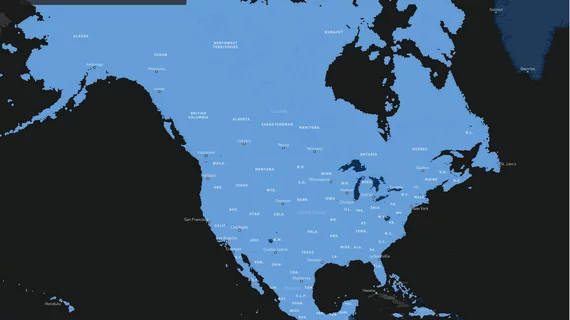Sirona Medical highlights use of Starlink, enabling radiology from anywhere
Sirona Medical, known for its cloud-hosted radiology workflow software, shares its story of utilizing Space X’s Starlink to improve service reliability and maintain the always-online promise of the cloud.
In a statement, Sirona said it raised nearly $100 million to build its cloud technology since 2018, and it plans to reveal and launch its new flagship product on Nov. 13. The announcement is expected to highlight the use of Starlink satellite Internet.
The company said the support of Starlink will allow radiologists to read images and make reports from anywhere in the world, utilizing practically any computer.
"One of the biggest challenges to radiology's cloud transition over the last five years has been performance—principally image load times for PACS," said Raghu Nyamagoudar, VP of engineering at Sirona, said in a statement. "As of today, not only has Sirona definitively solved these problems, but we've solved them for every radiologist in the country. Through Starlink, Sirona customers can now experience our best-in-class workflow performance from anywhere in the U.S. that Starlink covers, and soon, from anywhere in the world."
Sirona said radiology image load time over its platform average 2.3 seconds using Starlink, with the company emphasizing what fast internet-from-anywhere could mean for healthcare organizations in rural areas, where rapid readings of radiology reports are challenged, negatively affecting patients with critical issues.

